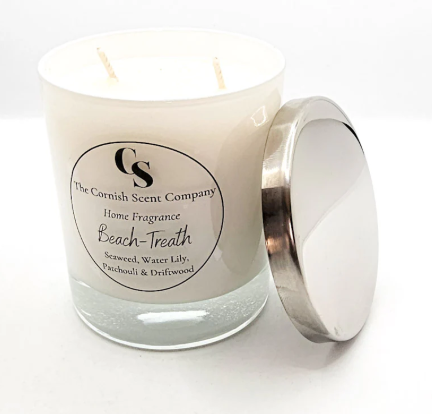Reasons for Staying Small (Edexcel A Level Business): Revision Note
Exam code: 9BS0
Small business survival in competitive markets
Many firms start small and grow into large companies or even multinational corporations
For example, Amazon's founders started the business in a garage
While many firms grow, others do not, or they intentionally choose to remain small but are successful for a range of reasons
Product differentiation and unique selling points
Small firms often offer something unique that larger businesses cannot easily copy
A unique selling point (USP) helps a business stand out in a crowded market
Products might be handmade, locally sourced or tailored to a niche audience
E.g. a small chocolate company selling luxury vegan truffles that aren’t available in supermarkets
Flexibility in responding to customer needs
Small firms can adapt quickly because they have fewer layers of decision-making
They can change product features, pricing or delivery methods with ease
They may be more likely to experiment with new ideas or react to trends faster than bigger firms
E.g. a local café may switch to oat milk or offer gluten-free cakes based on regular customer requests
Customer service
With fewer customers, small firms can build close relationships with customers and offer a personal experience
Customers may value being recognised and listened to
Good service often leads to word-of-mouth promotion and repeat business
E.g. a hairdresser who remembers each client’s style preferences and offers appointments outside regular hours
E-commerce
The internet allows small firms to reach national or global markets without needing lots of money
These firms can sell through platforms such as Etsy or their own website
E-commerce lowers costs by removing the need for a physical shop
E.g. a jewellery maker selling handmade earrings through Instagram and shipping across the UK
Owners’ objectives
Some small firms exist because their owners do not aim for rapid growth or maximum profit
They may focus on achieving work-life balance or doing something they enjoy
This is known as satisficing, which is aiming for enough profit to live comfortably rather than the highest possible return
Many small businesses are lifestyle businesses, set up to suit personal goals rather than pursue aggressive expansion
E.g. a self-employed graphic designer working from home who chooses projects they enjoy and sets their own hours
Case Study
Choosing to stay small — The Cornish Scent Company

The Cornish Scent Company produces handmade scented candles and toiletries using natural ingredients, building a loyal customer base through local markets and its own website
Why the business chose to remain small
Product differentiation and USPs
Each product is handmade using locally sourced ingredients
Scents such as “Cornish Sea Breeze” and “Clotted Cream and Honey” reflect the region’s identity
The small-batch process and unique branding help the company stand out from mass-produced competitors
Customer service
The owners personally handle most customer interactions
This personal touch — such as handwritten thank-you notes — has helped build strong customer loyalty and excellent reviews online
Owners’ objectives
The owners, a husband-and-wife team, started the business to pursue better work-life balance after moving away from busy city jobs
They prioritise family time and creative control over high profits, showing clear satisficing behaviour
E-commerce
Rather than opening a shop, they sell online through their website and Etsy
This keeps overheads low and allows them to reach customers across the UK without growing the business too quickly

Unlock more, it's free!
Was this revision note helpful?
